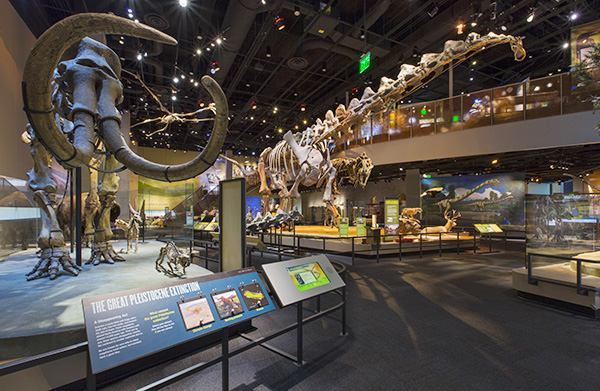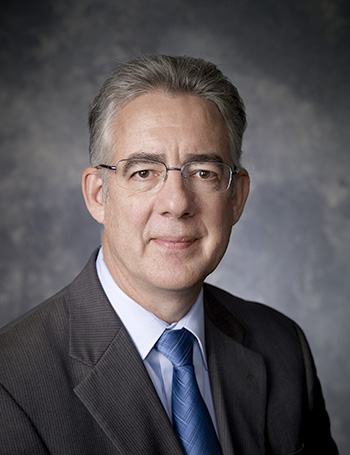Dr. Mark W. Spong, dean of the Erik Jonsson School of Engineering and Computer Science and a leading researcher in robotics and control theory, recently kicked off a new lecture program for the Perot Museum of Nature and Science called The Lab.
Spong, who developed the first robot that could play air hockey, spoke about the future of robotics to the Perot Museum audience of adults and kids on Feb. 7.
“In the past, robots were big, dumb and dangerous,” said Spong, referring to large machines that had to be physically separated from humans by cages, pressure-sensitive mats, light curtains and emergency stop switches.
“Today, robots are designed to work closely with people in the same space,” he said, referring to robots that now, and even more so in the future, help perform human surgery, deliver food, rehabilitate the injured, fabricate parts and serve in the military.
Spong described advances that made the current technology possible, and discussed future advances that will allow multiple independent robots to function as a single entity, similar to the flight of a flock of birds or travel of a school of fish. These robots would then be able to help monitor environmental and health care conditions.

The Perot Museum of Nature and Science opened to the public on Dec. 1.
Research occurring in UT Dallas labs, such as Spong’s Laboratory for Autonomous Robotics and Systems (LARS), has contributed to many of the advances.
“The event provided a new audience to discuss the technological advances of the future,” Spong said. “They were quite interested in our robotics program and the innovative work we are conducting in the Jonsson School.”
The Lab is an experimental program meant to test new program ideas and get audience feedback. The inaugural event was organized as a mash-up lecture on two different topics, at which audience members could ask questions of both speakers at the same time – thus identifying connections between two seemingly unrelated topics.
Spong’s lecture was followed by a practitioner of Ayurvedic medicine, a form of alternative medicine native to India. Audience members made the connection that robots might one day help Ayurvedic patients.
